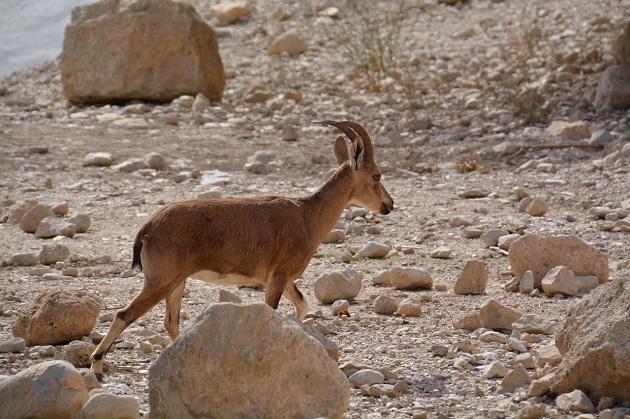The mountain goat
The Old Testament links the health of the body with the health of the soul.
08 APRIL 2017 · 10:00 CET

These are the animals you may eat: the ox, the sheep, the goat, the deer, the gazelle, the roe deer, the wild goat, the ibex, the antelope and the mountain sheep. You may eat any animal that has a divided hoof and that chews the cud. (Dt. 14:4-6)
The mountain goat, which you can still easily see on the desert mountains in Israel, belongs to the subspecies Capra ibex nubiana. I saw this example in Ein Guedi, near the Dead Sea. It is a ruminating mammal, often referred to in the Bible as suitable for human consumption and on account of their gracefulness. Its Hebrew name, Jahel and Jahala, is also given to people (Ezra 2:56).
The Old Testament links the health of the body with the health of the soul. Everything that is liable to cause human illness and death is considered impure, and God forbids it. Although the rules of purity had an eminently religious character, they were also based on practical, health related considerations.
The animals with a split hoof which ruminated, like cows, goats and sheep, could be eaten, while others which did not possess these features, like pigs, were forbidden. Now we know that these animals have parasites and microbes, as they sometimes feed on carrion, and these bacteria can invade the human body, especially if the meat is not well cooked, which can trigger a range of diseases.
As Christians, we are not required to obey these Levitical purity laws, as Christ has freed us from the constraints of the old covenant, and placed us under the new one (Colossians 2:13-23; 1 Timothy 4:4). However, we must be careful what we eat, and shun all kinds of excess because, as Paul said on the subject of fornication, our body is the temple of the Holy Spirit (1 Corinthians 6: 19-20).
Published in: Evangelical Focus - Zoe - The mountain goat
